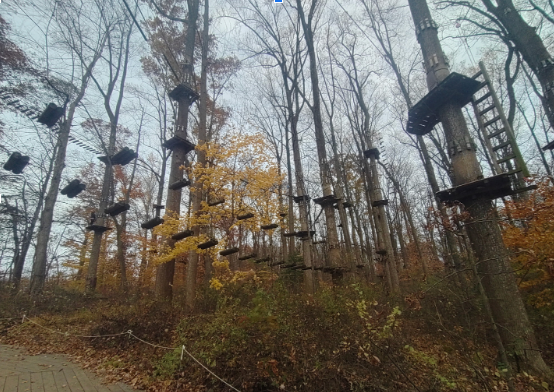Students Navigate Politicized Social Media
- Anna Mayer
- Dec 26, 2023
- 4 min read
Updated: Nov 25, 2024
Students are in the midst of an increasingly tumultuous political climate across the country. Not only are Generation Z exposed to the changing political landscape of recent years, but they are also increasingly actively participating in political discourse. According to Tufts University, Gen Z participates more in elections than previous generations, and that level of engagement is expected to continue.
One key difference in the political lives of Gen Z compared to that of older generations is the presence of the internet. According to the BBC, social media, specifically Instagram and TikTok, have given youth opportunities to participate in politics more actively than previous generations. In fact, 77 percent of Gen Z relies on social media as their primary news source.
Many students consider themselves to be consumers of social media, including political content, while not posting.
“I’m on social media a lot, though I don’t post anything,” said Dawn Drake (‘25). Alana Sapp (‘25), identifies herself similarly, saying “I am an avid social media user but I’m not an avid poster.”
Some students, however, see social media as a vessel for conveying political messages. “When I do post on social media it usually is political content,” said Gabri Kurtzer-Ellenbogen, a School Without Walls senior and GW student. “It’s not necessarily political in making a statement. It can be about knocking on doors for a political candidate, or things about what I'm doing as a call to action.”
Logan Alana (‘25), for example, considers herself an avid social media user. “I share my daily life and stay connected with others,” she said. “I used to steer clear of political content on social media due to my limited understanding of U.S. and global politics, knowing how detrimental that is. However, [the Israel-Palestine conflict] motivated me to overcome my reluctance and share information.”
Similarly, the Biden Administration’s approval of the Willow oil drilling project in Alaska moved many students to share their political views for the first time on social media.
Sapp appreciates seeing users advocate for their beliefs with their platforms. “I’m all for advocating for what you believe in,” she said, “it’s very interesting to see when people share their point of view.”
Some users, however, observed the emotional toll constant consumption of politics on social media can have on youth.
“Seeing content from people who disagree with me can get me angry because I feel like it’s coming from a place of lack of knowledge, sometimes a lack of empathy.” said a student who preferred to remain anonymous. “It can be hard on your mental health, but I think it’s more important to see it than to be isolated from it,” they added.
Drake shared a similar sentiment; “Sometimes you’re just not in the space to hear about politics. It’s so easy to get really negative, especially when you’re hearing a lot of it and seeing it all the time on social media,” she said, “Some people are very emotional about certain topics,” and seeing social media posts about sensitive issues can negatively affect them.
Matthew Weitzner (‘25), who is a frequent poster of political content, also noted the combative nature of social media politics. “I’m tired of constantly fighting,” he said. “I’m not sure it will bring that much change.”
Another theme observed by social media users is the spread of misinformation and polarization.
“Sometimes there seems to be this pressure that everyone needs to post about everything at all times,” said Kurtzer-Ellenbogen. She said “that ends up being harmful because there ends up being a lot of misinformation spread.”
“People are mostly posting infographics someone else made, and usually they’re definitely very strongly on one position,” said Weitzner, noting that “it’s usually a couple people you’ll see doing a lot of posting.”
Many students believe that it’s crucial to consider your own level of knowledge before engaging in discourse on the internet.
“If you’re super passionate, of course post,” said Drake, “but if you’re not very educated and you just see something make sure you go in depth about it to make sure you’re not spreading misinformation.”
Weitzner agreed. “It depends how well informed you are on a particular issue,” he said, in reference to sharing content. “If you’re just reposting someone’s infographic then it might not be the best. If you’re posting your own analysis that could be good, or if you’re trying to organize protests then posting can be good too. If you’re just posting what everyone else is then it’s not necessarily the best.”
Despite student’s concerns about negative impacts on social media, many agree that the benefits outweigh the harms.
“We’re in a generation where kids love to learn and because of social media we have access to a lot of information,” said Sapp. “I encourage you to post about it so we can know more ourselves and we can spread what we know with other kids around us.”
“The more people who are informed, the better we can collectively address [political dilemmas],” said Alana,“By sharing information on something so heavily used in today's society, we help ensure that the topic remains in the spotlight and that more individuals become aware of the complexities and nuances involved. Even if it's just a miniscule contribution, it matters.”







